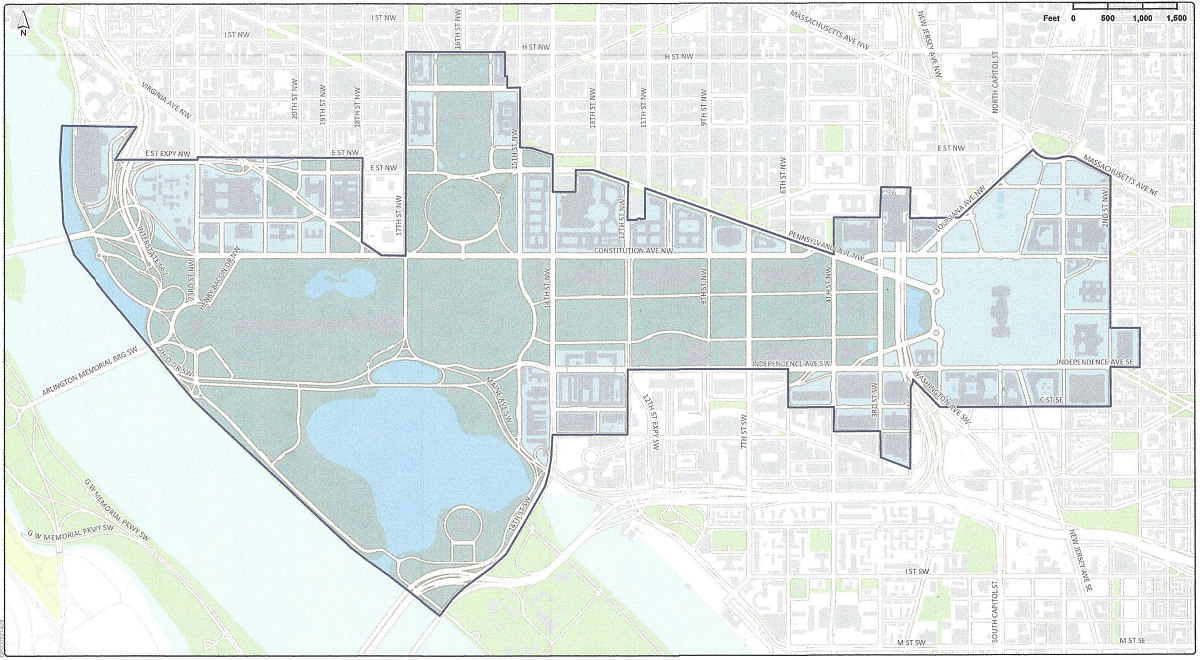What's Hot: Did January Mark The Bottom For The DC-Area Housing Market? | The Roller Coaster Development Scene In Tenleytown and AU Park
 House of Representatives Passes DC Statehood Bill
House of Representatives Passes DC Statehood Bill
✉️ Want to forward this article? Click here.
On Friday afternoon, the House of Representatives took a first, if symbolic, step toward granting statehood to the District of Columbia, passing HR 51 on a largely partisan vote of 232-180.
Statehood would relegate the nation's capital to a two-square-mile "federal enclave" surrounding the National Mall and various federal government buildings, while the remainder of the city would become the state of Washington, Douglass Commonwealth. The text of the constitution of the state of DC, approved in 2016, is available here.
story continues below
loading...story continues above

The debate in the House on Friday largely rehashed many of the same points previously made on both sides of the aisle, often during House committee hearings: most Democrats noted the historical import of the rallying cry against "taxation without representation" and the legislative process by which 37 states were admitted, while most Republicans argued that statehood would require a constitutional amendment or that DC residents should seek enfranchisement by joining Maryland.
It was this latter point that Representative Andy Harris (R-MD) passionately emphasized, stating that Congress does not have the right to create another state out of land Maryland ceded in the 18th century.
"This is not Congress's land; this is Maryland's land!" Harris said. "If you want voting rights, it's simple: do exactly what occurred in 1847 and give the land back to Maryland..don't steal this land from Maryland." DC Delegate Eleanor Holmes Norton replied that Maryland permanently ceded that land and cannot renege.
Representative Jamie Raskin (D-MD) also evoked the concept of retrocession as he pointed out that Arlington County and Alexandria were returned to Virginia in 1847 to capitulate to state representatives who desired to maintain the slave trade.
"If we can modify the boundaries of the federal district to placate the slave-masters in the 19th century, we can modify the boundaries of the federal district in the 21st century to grant statehood and equal rights to the people of Washington, DC."
As for the topic of taxation without representation, Representative Louie Gohmert (R-TX) noted that he has introduced bills to exempt DC residents from paying taxes to further cement the District's territorial status, preferring that to granting statehood.
"As a member representing the territories, I would rather pay taxes than have the treatment that this body gives to those that live in the territories," Virgin Islands' delegate Stacey Plaskett replied. "The United States territories that I represent are also not on equal footing with the rest of the nation, with no representation in the US Senate, no equal representation in the House of Representatives; unlike DC, we cannot vote for president. We know what it's like to be part of the greatest country in the world, but not a full participant, and it feels incomplete."
The statehood bill passed the House Oversight & Reform committee in February, and another bill to redesignate the city's political leadership with state honorifics is in committee. Although HR 51 passed in the House today, the bill is still expected to fail in the Senate.
Thumbnail photo from Ted Eytan.
See other articles related to: congress, house of representatives, statehood
This article originally published at https://dc.urbanturf.com/articles/blog/house-of-representatives-passes-dc-statehood-bill/17004.
Most Popular... This Week • Last 30 Days • Ever

As mortgage rates have more than doubled from their historic lows over the last coupl... read »

The small handful of projects in the pipeline are either moving full steam ahead, get... read »

The longtime political strategist and pollster who has advised everyone from Presiden... read »

Lincoln-Westmoreland Housing is moving forward with plans to replace an aging Shaw af... read »

A report out today finds early signs that the spring could be a busy market.... read »
DC Real Estate Guides
Short guides to navigating the DC-area real estate market
We've collected all our helpful guides for buying, selling and renting in and around Washington, DC in one place. Start browsing below!
First-Timer Primers
Intro guides for first-time home buyers
Unique Spaces
Awesome and unusual real estate from across the DC Metro













